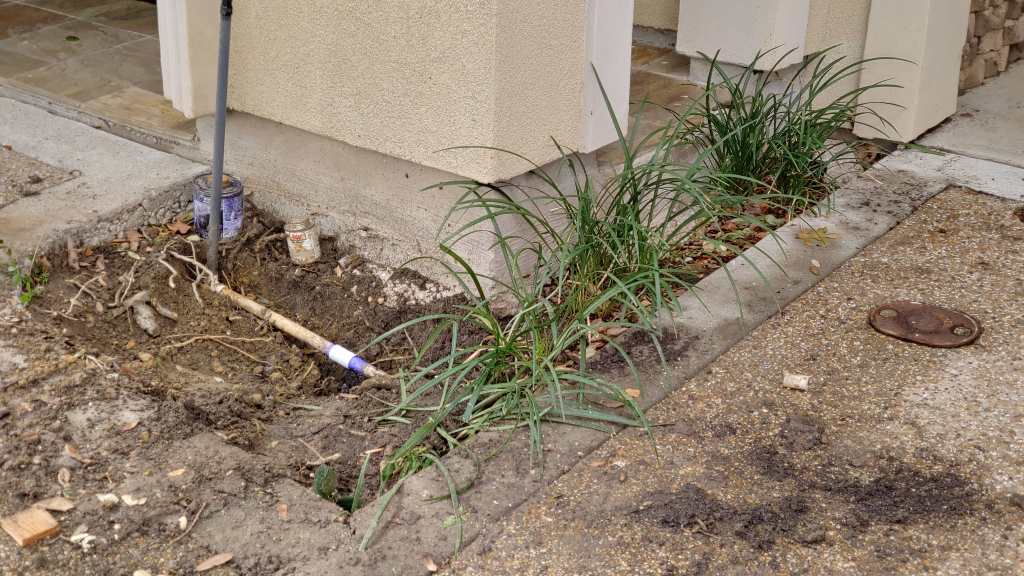
solvida
10 Signs a Sprinkler System Needs Repairs
Failing to identify a sprinkler system in need of repair can become a very costly ordeal. However, you don’t always need to be an irrigation specialist to spot a problem. Sometimes just knowing a few sprinkler troubleshooting tips is enough to diagnose and maybe even repair the issue yourself. Here are a list of the 10 most common signs your sprinkler system is in need of repair.

1. Increase in Water Bills
An increase in your water bill is an indicator that something might be leaking within your irrigation system. The possible causes might include:
- Cracked or broken sprinkler pipe
- Broken sprinkler head
- Hole in drip irrigation line
- Faulty irrigation valve
- Improper timer controller settings
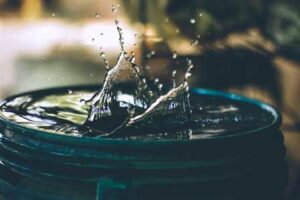
2. Excess Water in Valve Boxes
Each station (or zone) within your sprinkler system has a valve box in the yard. If you notice that there is a lot of water sitting in the valve box the next time your in the yard installing landscaping plants or caring for your sod grass, this could indicate the following problems:
- Faulty irrigation valve
- Sprinkler system leaks near valve box
- Broken pipe or fitting connecting irrigation valve to water main
- PVC pipe improperly glued
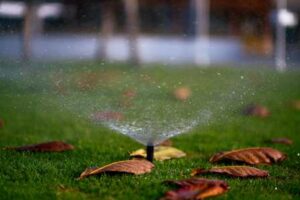
3. Faulty Sprinkler Heads
Your irrigation system is made up of several dozen sprinkler heads which can show any of the following signs of damage:
- Leaks excessive water
- Doesn’t pop-up
- Emitter is clogged
- Emitter is broken
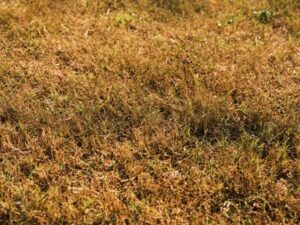
4. Brown or Yellow Patches of Grass
If you notice that specific portions of your lawn are turning brown or yellow, this could indicate the following:
- Brown patches of grass indicate a dry or underwatered lawn usually caused by lack of water
- Yellow patches of grass indicate a wet or over watered lawn usually caused by too much water
- Sprinkler pipe leak nearby
- Faulty sprinkler head nearby
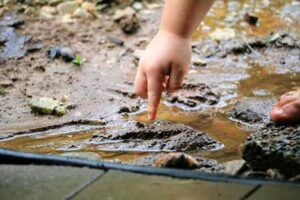
5. Muddy Spots in the Lawn
If you suddenly have a muddy spot in the yard or flower bed, assuming that your North Texas landscaping plants are being properly irrigated and it hasn’t recently rained, it could be caused by the following:
- Sprinkler pipe leak nearby
- Sprinkler head leak nearby
- Water main leak nearby
- Excess water from neighbors sprinkler system
- Poor lawn drainage
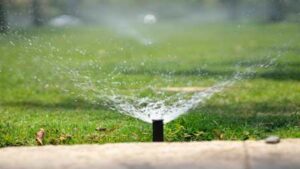
6. Low Water Pressure
If you notice that the water pressure is lower than usual, it could be related to the following:
- Leaky sprinkler head
- Leaky sprinkler pipe
- Leaky irrigation valve
- Leaky water main
- Hole in drip irrigation line
- Faulty irrigation valve
- Faulty pressure regulator
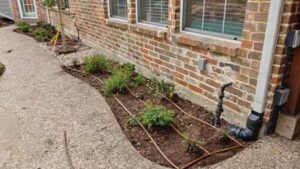
7. Inoperable Sprinkler System
If your sprinkler system is not operating, it could be due to the following:
- City water main valve is shut off
- Irrigation backflow preventer valve is shut off
- Faulty irrigation master valve
- Severe water leak
- Wiring issue with irrigation timer controller or valve
- Irrigation timer controller is turned off
- Improper setting or programming on irrigation timer controller
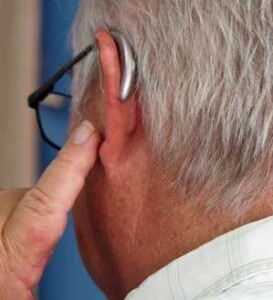
8. Buzzing Sound Near Valve Boxes
Although subtle, if you should hear a faint buzzing sound near your valve boxes, it could be attributed to the following:
- Faulty irrigation valve solenoid
- Faulty irrigation valve diaphragm
- Improper voltage to valve solenoid
- Faulty irrigation timer controller
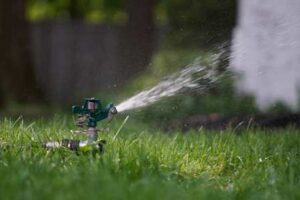
9. Uneven Sprinkler Spray Pattern
Should you notice that some of your sprinkler heads might be spraying inconsistently, it could be one of the following:
- Faulty sprinkler head emitter
- Adjustment needed to sprinkler head emitter
- Adjustment needed to sprinkler head body
- Low water pressure
- Broken sprinkler head
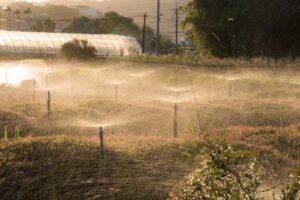
10. Multiple Zones Operate at the Same Time
If more than one zone or station seem to be coming on at the same time rather than running one at a time, look into the following:
- Faulty irrigation timer controller
- Faulty irrigation valve solenoid
- Faulty irrigation valve diaphragm
- Faulty or open irrigation valve bleeder screw
- Wiring issue with irrigation timer controller or valve
An irrigation system is a wonderful convenience when caring for a lawn and landscape. However, it contains many working parts and should be inspected regularly. We recommend watching your irrigation system run through a complete cycle once every 3 months to note any abnormalities or immediately after installing new landscaping. Most irrigation companies offer an annual inspection which is a good idea to schedule before it’s needed in the spring, especially if you noted any of the 10 signs that your sprinkler system may need repairs during your 3 month inspection.